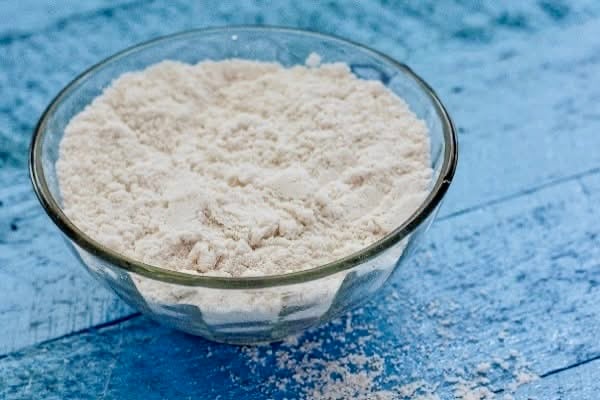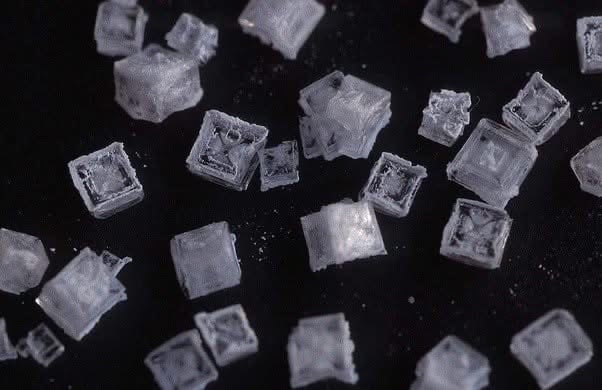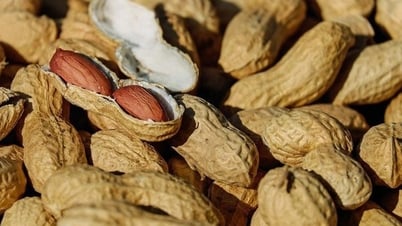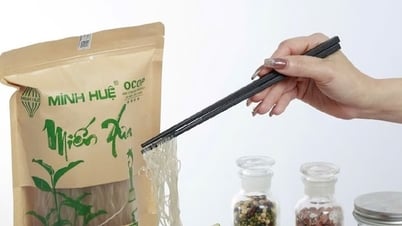Currently, there are many types of imported rock salt being sold on the market, which are dozens of times more expensive than regular salt. In particular, is this type of salt really good for health with many advertised uses such as being able to cure diseases, neutralize excess acid in the body, alkalize the body... Many people wonder what is different about imported rock salt compared to traditional raw sea salt.
Dr. Vu Thi Tan - lecturer of Inorganic Chemistry - Hanoi University of Science and Technology analyzed as follows.
Rock salt is salt that has been heated at high temperatures for many hours. Manufacturers often give a description: salt is milder than sea salt, has a sweet aftertaste, is good for health, is used to season dishes, dipping salt, etc. Rock salt is in the form of a fine powder.

Coarse salt is in the form of a fine powder.
Photo: Dr. Vu Thi Tan
Regular sea salt has a cubic crystal form, the main component is NaCl, in addition to containing dozens of minerals such as: Ca, Mg, K, Se, S, Ba, Zn... With crystals at high temperatures, the structure will be broken. So for salt, when heated, the cubes will break, creating a fine powder like the form still seen in stewed salt.
The melting point of NaCl is around 800ºC, and if heated further, the liquid NaCl will begin to boil and evaporate. Thus, after stewing sea salt for a long time, a small amount of NaCl will evaporate, creating a bland taste when tasting the salt.

Sea salt crystals are cube shaped.
Photo: Dr. Vu Thi Tan
In addition, salt is stewed using tools made from materials such as earthenware, clay, etc., so a solid-phase reaction between NaCl and the materials themselves can occur, which can create a small amount of trace elements in the clay, giving the stewed salt a unique flavor.
"However, this reaction occurs very slowly, only at the point where the salt comes into contact with ceramic and clay materials, so the trace elements of the baked material that penetrate the salt are extremely small. After being stewed, the shape of the sea salt changes, but its properties are still salt," Dr. Tan shared.
Source: https://thanhnien.vn/muoi-ham-nhap-khau-dat-gap-chuc-lan-muoi-bien-co-that-su-tot-cho-suc-khoe-185250522103635201.htm






























































































Comment (0)